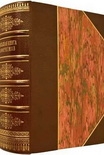Damien Broderick - Strange Attractors, Original (pdf) [best 7 inch ereader txt] 📗

- Author: Original (pdf)
Book online «Damien Broderick - Strange Attractors, Original (pdf) [best 7 inch ereader txt] 📗». Author Original (pdf)
fatigue you with my commonplace concerns, M r Lockwood. Impute
it, if you please, to my over-zealous admiration for your powers as an
observer and reporter; let me make amends with a far more interesting subject — let me talk no more about The Monk, but of the women in the next room, instead; for they are nothing so simple as characters
lifted from a novel. No, each is the distillation of a century. Each owes
her characteristics to the females represented as desirable by novelists,
playwrights (in one case, American picture-makers) over an entire
century. And I’m convinced we shall observe a degeneration: Anglo-
Saxon males have always been so greatly influenced, when they fall in
love, by those artists of the pen. They will choose mates as like as possible to the characters admired, and persuasively set forth, by artists.
‘Yet everyone admits that artists are misfits in the world, essentially
incompetent and impractical, the worst possible spouses — judging
ill themselves, and attracting only unbalanced members of the normal populace; case after case instantly springs to mind. Everyone knows it; yet how do people behave?
‘Begin with the sixteenth-century composite, young Anne . . .’
(pointing to the girl in the farthingale, who now apparently cried
aloud for assistance from some invisible being — although, of course,
we could not hear a word). ‘Men marry her like, inspired by the plays
68
Yvonne Rousseau
they see; women even strive to emulate her; come the seventeenth century, there’s a crop of descendants, whose character has changed accordingly — and from these in their turn the artists are choosing the
like of Bellamode . . .’ (the lady, it seemed, who had so alarmed me
with her prinking at the mirror). ‘She has her own style of descendants, among whom are the eighteenth-century artists who raise up Clarinda . . .’
I sighed sentimentally, for he had here indicated my own goddess.
‘Who could hesitate?’ I then burst out: ‘Do you pretend that writers influence me, when I prefer that divine creature above every other?
Absurd!’
I arrested myself, blushing at my own absurdity; I was behaving,
involuntarily, as if the fellow’s farrago were truth!
Francis’s eye upon me had sparkled momentarily, not with resentment, but with an inscrutable enthusiasm; now he ground his teeth.
‘It’s ridiculous to have to cope with someone looking like that,’ he muttered savagely. ‘The computer ought not to be so literal-minded about a self-image — not in a man with such all-round personal conceit.’
Again he addressed himself to me, but very abstractedly: ‘I only
hope three hours gives enough time for you to write out your report.
I dared not give more than three hours’ life after waking — not to any
of my creations. They may so easily prove violent, or desperately unhappy; they were conceived in the brains of their opposite sex, after all, and therefore very partially, all six.’
There really were only five women — four of them now upbraiding the ‘sixteenth-century’ Anne. Francis made an abrupt movement, and suddenly we could hear the lady of the gleaming nether limbs.
(‘Evadne,’ said Francis, his wits apparently returning: ‘She belongs to
the twentieth century.’)
‘They’re darn right,’ Evadne was telling Anne. ‘You talk too much,
and you don’t even make sense.’
‘Alas, Mistresses,’ cried Anne, ‘Would you have me plain and short?
Nay, I am the merriest madbrain, and the most fantastical trimm er
and tricker, that ever crisped it and frisled it from ear to ear; set my
tongue to the barest, courtless stuff, and my nimble spirit comes pricking in, and swells the egg as much beyond all hooping as the moonish sea’s brocade!’
Francis looked anxious: ‘Elizabethan playwrights didn’t care so
much for characterisation, as for their own mastery of language . . .’
Now, however, Anne was all blushes and honest penitence.
‘But pardon me, I pray you: I am a right maid, for this boyish
A ir Lockwood’s narrative
69
prating; my giddiness mistakes you, belike, for sweet Ariadne, my
lovely-hearted playfellow,’
(‘It was the fashion for Elizabethan maidens to feel sincere affection
for one another,’ Francis confirmed, correctly interpreting my glance;
I was sure that the divine Clarinda would never stoop to confidential
chatter with mere females of her own age; nor should I wish it for her.)
‘But O, and in sober earnest, when you four such seeming weird
women burst on my piteous eye — ’ (the word, ‘weird’, seemed greatly
to offend Evadne, but Anne was innocently heedless) ‘ — would that
my soft fears had bid me call on gentle Ariadne, and not upon
Antonio! ’Twas the heaviest, light break-secret babbling!’
‘Antonio is the unseen, to whom she was appealing!’ I observed.
Francis stared at me sombrely. ‘And that same Antonio has, in her
mind’s eye, exactly your own lineaments, M r Lockwood.’ I gaped.
‘Each of those women has, in her memories and expectations, an ideal
lover: the computer and I have taken the liberty of giving to each the
memory of your face — although each would remember you in different dress, different situations, and with a different name.’
I know, from experience, that I am tolerably attractive, so that
(without conceit) the choice did not appear altogether injudicious; I
was, indeed, insensibly seduced into believing Francis’s account of the
situation, for





Comments (0)